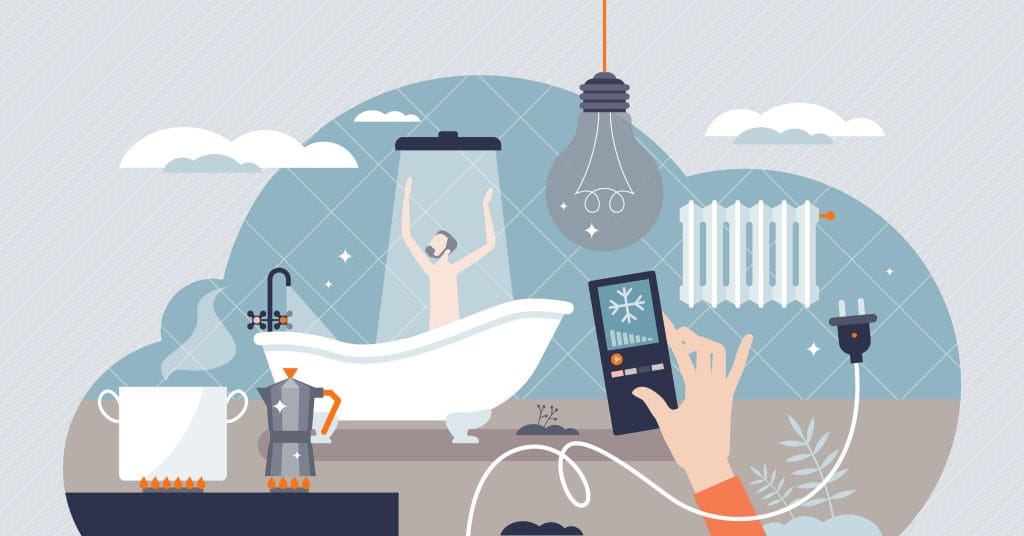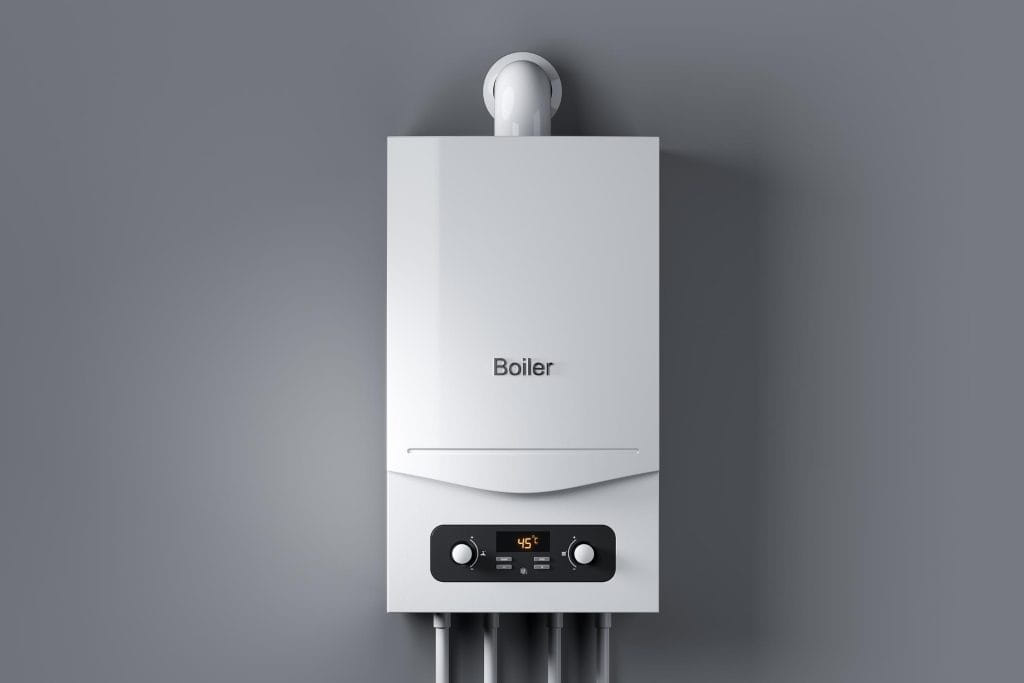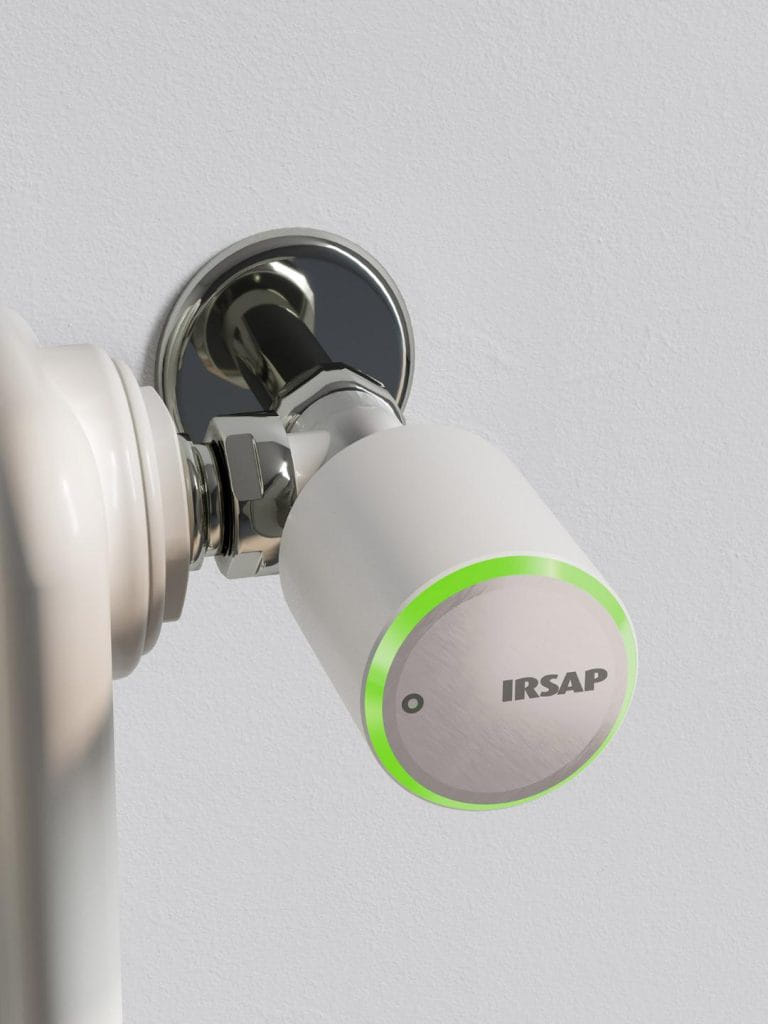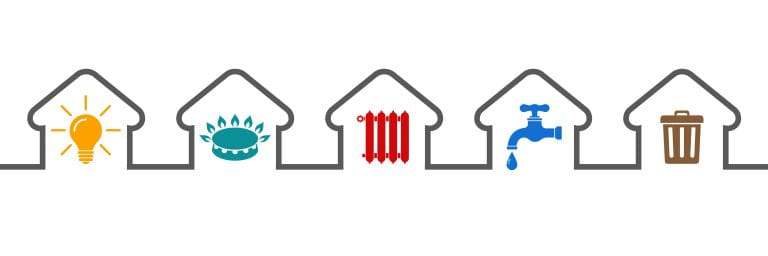When it comes to energy costs, this looks like being a truly difficult winter for Italian families.
Especially since the continuing war in Ukraine has been causing consistent increases in the cost of methane gas for heating, and this is being felt all over Europe.
Most Italian families use natural gas to heat their homes, and methane in particular.
The Italian government has tried to alleviate this situation with several interventions, but these have only solved the problem in part.
We need to accept the situation: this winter, bills are going to be much, much higher.
However, consumers do have some means at their disposal to make significant savings on their heating bills.
The first steps in reducing consumption are mainly methods to eliminate waste.
When it comes to these actions, it may be very useful to put in place a smart heating system, able to control the consumption of a normal gas boiler and guaranteeing good climate comfort at home, but with lower consumption.
Let's take a look at how gas heats the home and how consumption can be kept under control.

Gas heating: what is it and how does it work?
The majority of Italian homes are heated by a gas-fired boiler.
The boiler receives gas from the mains supply and it burns this gas to heat mains water.
The waste from this gas combustion, the so-called fumes, are released through a flue.
The gas from the mains supply powers a flame that generates heat, which then passes from an exchanger where it is divided from the fumes.
The heat powers two main circuits, i.e., the domestic water circuit, for the water in kitchen and bathroom, and the one used for heating pipes.
In this latter case, heat is delivered to the room, either via wall-mounted radiators or through pipes under the floor.
The heating is switched on through a series of circulators connected to valves, regulated by a board inside the boiler.
When the hot water is turned on or the heating is switched on, the board inside the boiler commands water to be taken from the mains supply and for the flame inside the combustion chamber to be supplied with gas to heat the water to the required temperature.
When a valve is shut, the boiler stops taking both water and the gas needed to supply the power to heat it.

For and against gas boilers
A gas boiler for heating and hot water is doubtless the most widely used solution in Italian homes.
Its plus points include easy installation, as well as the great reliability that this type of system maintains over time - a period of ten years, more or less.
Of course, the more recent technological models offer superior performance and lower consumption compared to older models.
What's more, up to a year ago, gas was the heating system that used the cheapest form of fuel, methane gas.
The maintenance costs of a gas boiler are also quite low, since attention to the correct operation of the device is in place.
Another significant advantage of gas boilers is that, if they are too old and need replacing with a more modern, efficient model such as a condensing boiler, there are some very good tax incentives, like the Ecobonus.
To date, the real disadvantage of a gas boiler, whether traditional or condensing, comes from the cost of methane gas, which has now reached exorbitant prices.

How to save on gas heating
It is becoming more and more important to limit our gas consumption.
There are lots and lots of little things that we can all do to limit the amount of gas we use, while still maintaining comfort levels in the home.
In fact, there is a good deal of waste caused by carelessness, which leads to us consuming more gas than we really need.
First and foremost, our use of hot water: water temperature should never be higher than 45° and often, hot water is left to run needlessly.
To remedy this, we could think of spending less time in the shower, or turning off the tap while cleaning our teeth.
Of course, our greatest expense in gas terms is for heating.
We should be reducing the maximum temperature on our home thermostat by one degree, from 20°to 19°, avoiding all use of the system at night, while we are sleeping, as well as taking care to ensure the system is working correctly.
Funnily enough, a radiator that is full of air will continue to use gas without heating a room to the required temperature.
We also need to make sure that rooms are well insulated, checking windows and doors to prevent draughts from lowering the temperature inside.
In general, a correctly maintained heating system is able to cut avoidable and eye-wateringly expensive gas waste.

Why make a gas heating system into a smart system?
For all the above reasons and in the case of a gas boiler, the best solution is to rely on a system of smart heating such as the one by IRSAP NOW, which serves to notably reduce gas consumption among its main characteristics.
First and foremost, it is a multizone system that allows different temperatures to be set in different rooms, according to their normal use, ensuring the best comfort at all times while cutting costs by a large amount.
It is a system that can be fully controlled remotely and at all times, using the Irsap Now app.
The app can be used to command and control devices such as the smart thermostat and the smart thermostatic valves that allow problem-free control of the heating at all times.
The app can also check the health of a heating system at any time.
There are many functions in this system that help to save on gas consumption.
The eco mode in particular allows the system to learn from the habits of the people living in the home, bringing forward the switch off time slightly compared to the set time.
This means the temperature remains at the level required, but consumes less gas.
The Geofencing function allows the system to recognise when there is no one at home, switching off the heating automatically, without there being any need to enter any controls, even if the time settings say otherwise.
The sensors on the IRSAP NOW smart thermostatic valves and on the smart electric radiators by IRSAP are able to detect whether or not there is a window open in another room, for example.
In this case, the zone valve signals the event to the system, which will temporarily suspend heating in that room only.
This way, the system prevents the heating from operating needlessly, working at high intensity to compensate for the notable lowering of the room’s temperature, caused by the open window, and therefore, saving large amounts of gas.

Important: efficient technology can help to save a good deal
We have seen how gas boilers, while maintaining high standards of comfort in the home, could weigh very hard upon the budgets of Italian families next winter, due to increased natural gas costs.
Therefore, we need to follow a new logic, one that makes us take care not to waste the gas we use, maybe with the help of smart heating to save considerably on the use of raw materials while keeping consumption under control.









































